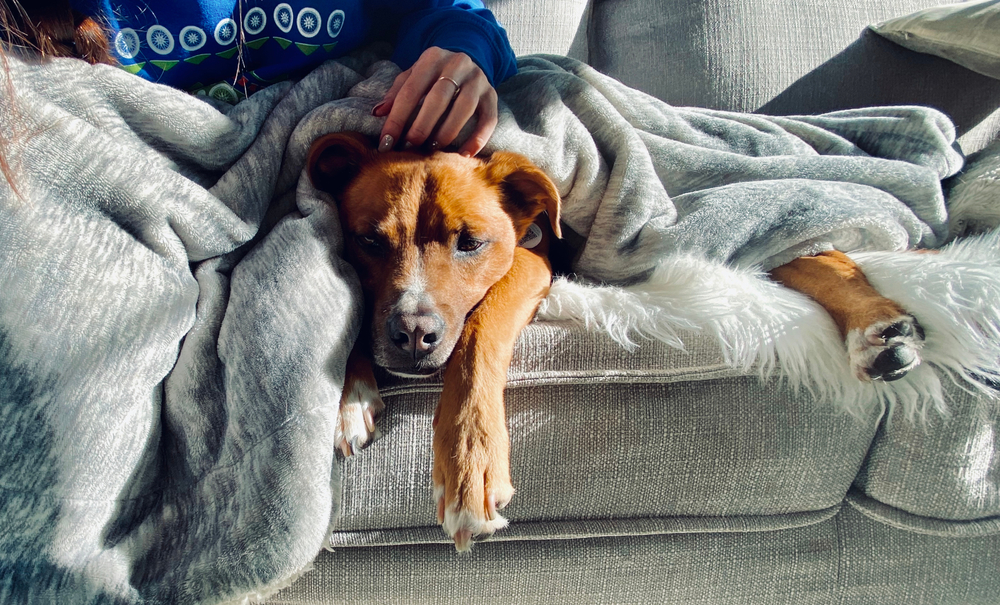Upswings in canine respiratory diseases regularly occur in diagnosed cases throughout the country, but the latest occurrence has dog owners concerned. The media have been highlighting cases of what appears to be a mild respiratory illness, followed by a sudden onset of pneumonia. To help assuage your concerns about your dog’s health and safety, our Alisos Animal Hospital team answers common questions about this “mystery” canine respiratory illness.
Question: What is the mystery canine respiratory illness?
Answer: The latest canine respiratory illness being reported across the country is part of the canine infectious respiratory disease complex (CIRDC), a syndrome of diseases caused by various bacterial and viral pathogens. These pathogens are typically highly contagious and can lead to co-infections in affected dogs.
While most infected dogs develop mild, self-limiting signs, some cases can progress to severe disease or death. Dogs who contract this illness can develop acute pneumonia that becomes severe enough to be fatal, or they can suffer from chronic pneumonia that is not responsive to treatment.
Q: What are the clinical signs seen with the latest canine respiratory illness?
A: Like most respiratory illnesses, this latest one is highly contagious and spreads rapidly among dogs in contact with other dogs. Infected dogs can show the following signs:
- Acute cough
- Sneezing
- Nasal and eye discharge
- Fever
- Anorexia
- Lethargy
- Rapid or labored breathing
Reported cases appear to fall within three general categories:
- Chronic mild to moderate tracheobronchitis that can last two months or more
- Chronic pneumonia that is minimally or not responsive to antibiotics
- Acute pneumonia that becomes severe and can result in death within 36 hours
Overall, this respiratory illness seems capable of causing a cough that can linger for weeks or months, resist antimicrobials, and rapidly progress to death, despite its initial mild symptoms.
Q: How is this respiratory illness different from other canine respiratory infections?
A: While Bordetella bronchiseptica (i.e., kennel cough) and other pathogens responsible for CIRDC can cause a lingering cough that lasts for weeks, the vast majority of cases are self-limiting. This new respiratory illness is also capable of causing a long-lasting cough; however, a non-productive cough can turn into respiratory distress within a few days.
Q: How will I know which respiratory pathogen is causing my dog’s illness?
If your dog has an uncomplicated case of kennel cough, diagnosing the exact pathogen typically is unnecessary. However, determining the pathogen responsible for this “mystery” respiratory illness will guide appropriate treatment.
If your dog has been sick for fewer than four days or develops acute pneumonia, swabs can be taken from their mouth and nose to test for various respiratory pathogens. Pathogens of concern include canine pneumovirus, H3N2 canine influenza virus, and Streptococcus zooepidemicus.
Canine pneumovirus and H3N2 canine influenza virus are most likely to cause acute pneumonia that does not respond to antibiotics. Streptococcus zooepidemicus is an emerging bacterial pathogen that causes acute pneumonia and can result in death. Dogs infected with S. zooepidemicus will respond to appropriate antibiotic therapy if started quickly.
Regardless of the cause, the vast majority of dogs with a respiratory infection recover in a week or two without any complications. While the potential for severe illness is possible, it is minimal.
Q: How can I reduce my dog’s risk of contracting respiratory illnesses?

A: Although respiratory illnesses are generally highly infectious, you can reduce your dog’s risk of contracting bacterial or viral pathogens with the following tips:
- Stay current — Keep vaccinations up to date, especially core vaccines, such as canine distemper, and non-core vaccines, such as Bordetella, canine influenza, and canine parainfluenza.
- Stay away — Limit your dog’s exposure to other dogs, especially ones you do not know. Avoid dog parks, pet-friendly businesses, and communal water bowls to prevent disease transmission.
- Stay at home — Reduce time at doggy daycare, keeping your dog at home if possible. If you plan on traveling, avoid boarding facilities and instead hire an in-home pet sitter to care for your dog.
- Stay clean — Practice good hygiene after petting other dogs or being around an ill pet. Wash your hands thoroughly and change your clothing before interacting with your dog to prevent disease transmission.
With the respiratory illness that is affecting dogs across the country, it’s best not to wait to seek veterinary care. If your dog is coughing, anorexic, lethargic, feverish, or has labored breathing, contact our Alisos Animal Hospital team for an appointment.








Leave A Comment